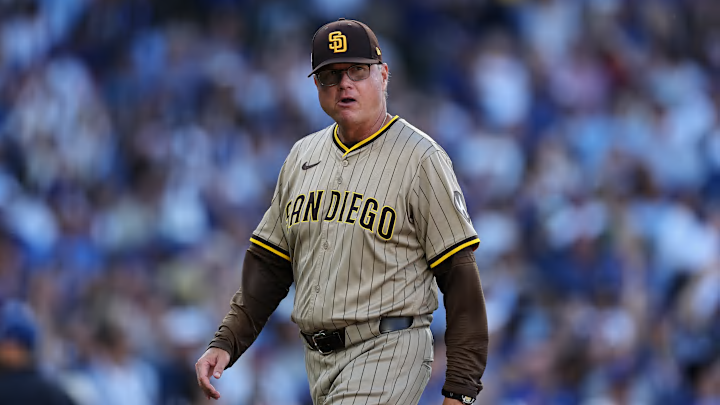October baseball is cruel in how quickly the narrative can flip from hope to heartbreak. Every pitch carries the weight of a season, and when that pitch feels wrong, it lingers. For San Diego, the frustration of Game 3 boiled over in the kind of controversy that keeps fans awake and replaying the moment on loop. The Padres had battled all series, inching within striking distance, and then — on the swing pitch of the night everything tilted.
That swing pitch was the low fastball Xander Bogaerts saw from Brad Keller. You didn’t need a partisan lens to see why it frustrated the Padres dugout; the call was tough to swallow in real time and even harder after the freeze-frames hit social media. The aesthetics were brutal: a low heater, sharply framed, and a strike signal that cut the Padres’ rally at the knees. In a one-run game with a season attached, that’s gasoline on an already roaring fire.
Padres manager Mike Shildt loses it on umpires in viral postgame footage
On the ESPN broadcast, Mike Shildt looked measured — stern, yes, but composed. Then the fan-shot footage surfaced. When the game was over, the Padres’ manager absolutely let loose on the umpiring crew, the dam bursting once the cameras pivoted elsewhere. “Ballistic” isn’t hyperbole; it was a raw, unfiltered reaction from a manager whose team had just watched its year end on a ruling no competitor wants deciding the final chapter.
Yo holy shit #Padres reaction after the game to the umpires pic.twitter.com/Mw6475vUd2
— kyler (@padsfanatic) October 3, 2025
Can you blame him? The Padres’ season didn’t come down to a single strike; it never does. San Diego had chances across the series, missed execution with traffic on the bases, innings that begged for one more swing, one cleaner at-bat.
But it’s also true that when the moment is that big and the bat is literally taken out of your player’s hands, the frustration feels justified. Players want the game decided by the next pitch they can hit, not the last call they can’t control. Shildt’s explosion wasn’t just anger; it was the emotional spillover of a clubhouse that believed it had more baseball in it — and saw the door slammed on judgment rather than contact.
San Diego will own its missed chances, because they have to. But they’ll also carry the sting of that final call into an offseason where the standard rises, the bats must cash in more often, and the team’s identity has to be finishing the inning, not just reaching it. Shildt’s postgame fire won’t change the result, but it does send a message: the Padres aren’t shrugging this off.
